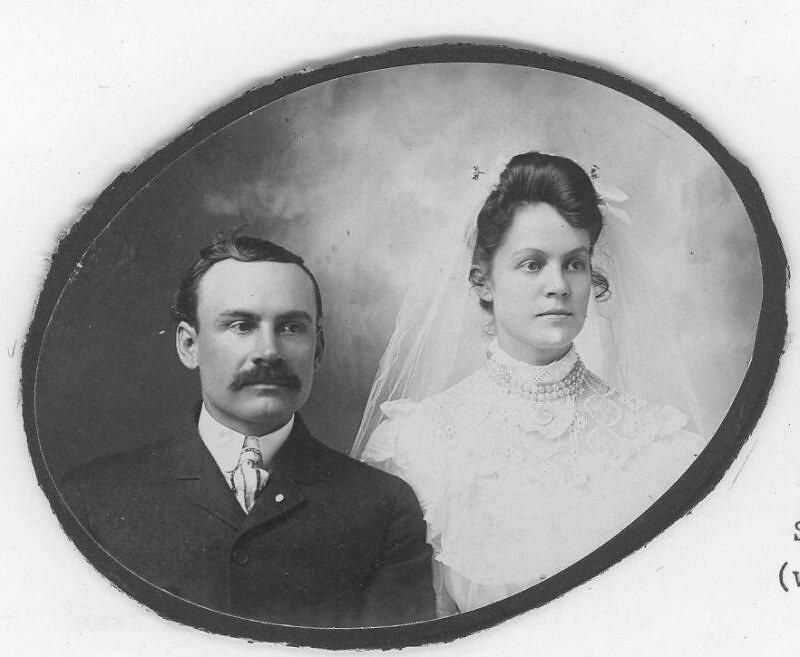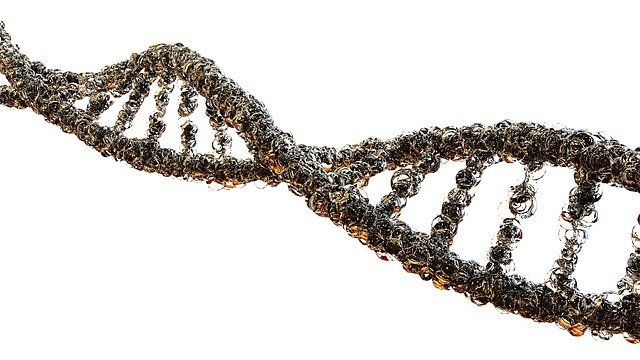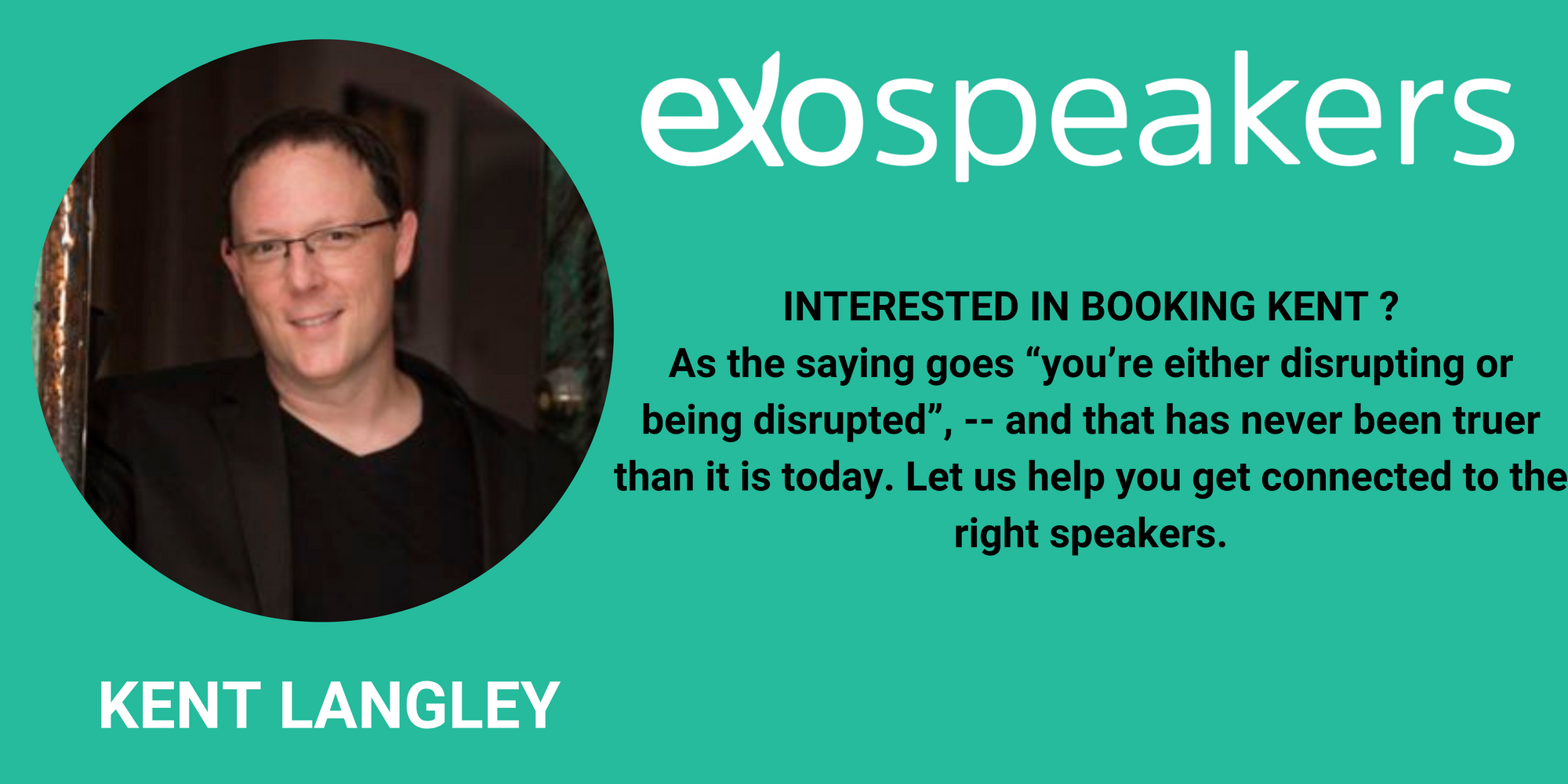
The Possibility of Inheritable Data (Your DNA Can Do That!)
In a future where DNA sequencers unlock the ancestral archive encoded within our genes, the boundaries between personal memory and human history blur as we become living repositories of our shared past.
Imagine you have lost that one wedding picture your mother gave you. The one you loved so dearly of your grandparents at their wedding; so in love. You lost it in the move to the new home. Half your stuff probably got lost in the move! You just can't find it anywhere physically or digitally. It is annoying, but you are not worried.
You just prick your finger with a needle for a drop of blood. Then, put that in a DNA data vault sequencer and tell the machine to give you back copies of all photos tagged weddings from a particular year. You'll have your photo back shortly and send the file off to the photo mat.

The Technology
A DNA sequencer is a device that, when presented with DNA, the source code of all life, can read that code just as you might decipher the instructions of your newest furniture purchase from Ikea. Well, it might be easier to sequence DNA than make sense of Ikea directions. But, our DNA is the instruction set for how we are made.
You just sequenced your own DNA from your own blood to retrieve valuable family photos! They were stored there by your parents directly in their DNA. It is like storing photos in your phone's memory. They digitized all their pictures and added them into their genetic code long before you were even conceived. All those embarrassing baby pictures of you are in there, too, I bet! When the data was stored, a table of contents was added so things could be found. The technology like the one discussed in Nature Communications called "Promiscuous molecules for smarter file operations in DNA-based data storage" points the way to data stored and fully searchable using DNA. It's not a giant leap to write any information into our own genomes and even apply techniques like gene-drive. We already know how to store data in DNA, and we're getting better at it very quickly. DNA is one of the largest data storage systems we have access to today.
Where Else Might this Lead?
Why stop there? What if we could inherit the data of our ancestors? What about all of human history in your genes from your parents at birth? It sounds like science fiction, but it is probable to be true in the future. We have the tools that are advancing quickly in CRISPR/Cas9 and its progeny. We can write the code of life into living biology itself! Would a type of human arise that wants to be a store for all of humanity's data, passing it down from generation to generation by cloning or the good old-fashioned way; babies? A living breathing Wikipedia? It occurs to me that would even breed animals, non-human animals, for data storage purposes. We already have the technology to store anything we wish in our DNA and propagate it down our ancestral lines for as long as they shall continue. But, should we? Is this ethical? Is it advisable? What would happen if people started hacking the data and starting using gene drive technology to force it to spread virally? How do we protect from lines of information going extinct? There are just so many questions. Oh, the debates we will have!
Why not periodically sync your data with ALL the data? The human race will produce several exabytes of data per day, around 463 exabytes, as stated here by 2025.
All of humanity, as of the start of 2020, produced about 44 zettabytes. One thousand exabytes equals one zettabyte. So, why not just load it all up?
Some say that all the words that have ever been spoken by all humans that ever lived, if saved digitally would equal about 5 exabytes of data. That's about 10 billion people.
By 2025 humanity will routinely be producing nearly 100 times that every single day!
The Ultimate Data to Store in our DNA?
A human neocortex holds about 1.47 zettabytes. So, if you can find a way, and this might also becoming, then just grab a copy of your ancestor's brain and pop that into your genome as well and then the genomes of your offspring. In other words, when you die, your mind would not. It would carry on down the line. You'll need your favorite brain browser. Neuroglancer is leading the field at the moment, and have fun exploring the minds you have saved.

DNA Storage is incredibly efficient and incredibly dense. We are not quite there yet, but it does seem that it will eventually be possible. We are mere novices now, but the storage density we can achieve is snowballing as well.

Peering into the Future
What we've imagined here is part science and part science fiction. DNA Storage technologies, as pictured here, may mean that the future's history may be written into the very genes of our ancestors!
#DNADigitalArchive #GeneticMemory #FutureTech #EthicalDilemmas #DataStorage #AncestralKnowledge #GeneDrive #CRISPRAdvancements #Neuroglancer #LivingRepositories #DNASequencing #HumanHistory #DataSecurity #EthicalDebates #FutureInnovations #DigitalHeritage #SharedPast #GeneticLegacy #Bioinformatics #FutureOfMemory
Cover by Photo by Rod Long on Unsplash

ExO Insight Newsletter
Join the newsletter to receive the latest updates in your inbox.








